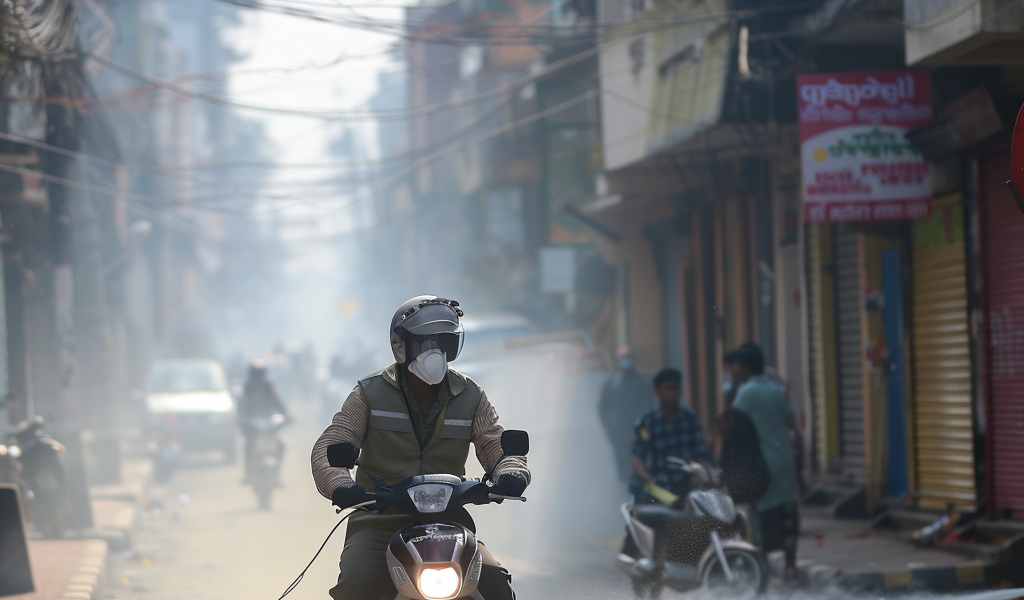Guwahati is taking proactive measures in response to a concerning rise in dengue cases, with the Guwahati Municipal Corporation (GMC) announcing the acquisition of five specialized vehicle-mounted thermal fogging devices. This initiative comes as health department reports indicate that the city has recorded over 1,003 dengue cases since the beginning of August, with more than 60% of these cases occurring in the eastern zones of Greater Guwahati, particularly in areas such as Geetanagar, Zoo Road Tiniali, and Bhaskar Nagar.
The recent surge in dengue cases has prompted the GMC to enhance its vector control efforts. Senior health and medical officer Pritam Kumar Das highlighted the significance of the newly procured fogging devices, which are designed to operate on a 12-volt rechargeable battery. These devices can be mounted on any two or three-wheeled vehicles, making them versatile and efficient for urban environments. Each device features a chemical tank with a holding capacity of 50 liters and is capable of spraying up to 80 liters of insecticide per hour.
Das emphasized that the use of mopeds for fogging will facilitate operations in congested and hilly areas, where traditional methods have proven cumbersome. Previously, fogging machines had to be manually transported to these locations, but the lightweight nature of the new devices will streamline the process significantly. This innovation is expected to enhance the efficiency of dengue control measures across the city.
In addition to the five new vehicle-mounted fogging devices, the GMC has also recently acquired 10 handheld fogging machines. The cost of each handheld device is approximately Rs 8 lakh, while the vehicle-mounted devices carry a price tag of Rs 14 lakh. To further bolster the fogging operations, the GMC has hired 15 new field workers, supplementing the existing workforce that previously included 15 handheld machines and seven vehicle-mounted devices.
The strategic investment in these fogging devices and personnel reflects the GMC’s commitment to combat the dengue outbreak, which has become a pressing public health concern in the region. With the monsoon season contributing to the proliferation of mosquito breeding sites, the GMC’s efforts are crucial in mitigating the impact of this vector-borne disease.
The municipal corporation is urging residents to remain vigilant and take preventive measures against dengue, such as eliminating stagnant water and using mosquito repellents. The introduction of advanced fogging technology is a significant step towards reducing mosquito populations and protecting public health in Guwahati.
As the situation evolves, the GMC is expected to continue monitoring dengue cases closely and adapting its strategies to ensure the health and safety of its residents. The combination of innovative technology and increased manpower aims to create a more effective response to the dengue crisis, ultimately fostering a healthier community.





